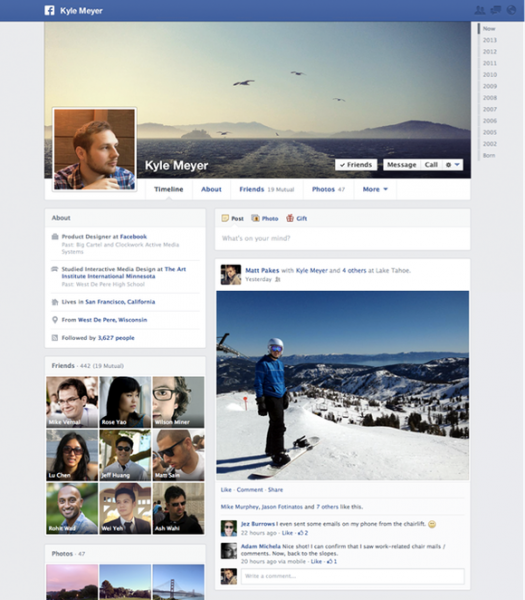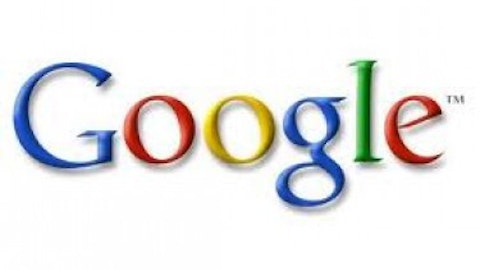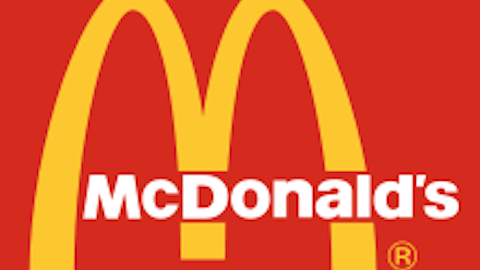The debate on Facebook Inc (NASDAQ:FB)’s long-term future has been a conundrum for industry specialists and Wall Street money managers for the past year. Despite this, a renowned international media mogul has mapped out Facebook’s future in a single tweet. Rupert Murdoch had this say on Twitter:
Look out Facebook! Hours spent participating per member dropping seriously. First really bad sign as seen by crappy MySpace years ago.

But are things always black and white? I mean, Murdoch couldn’t have just woken up one day and decided to make a hit at Facebook. After all, we are talking about someone who has experience with falling social networks. In 2005, Murdoch forked out $580 million for the then-popular MySpace. Soon after the deal, MySpace’s user base evaporated faster than a muddy puddle in the Sahara Desert.
Moral of the story?
If there is anyone who is privy to those little yet critically-important warning signs in social media, it’s Rupert Murdoch.
User experience vs. revenue
Companies let you see what you need to see. Behind the closed doors of the board room, Facebook is fighting a battle that MySpace fought and lost several years ago.
MySpace tried to create a balance between monetization and user experience. Unfortunately, this balance was more than lopsided, leading to an over-monetized social network with a ‘crappy’ (as Murdoch put it) user experience. The end result of this was next to ZERO users.
Facebook Inc (NASDAQ:FB) is now fighting a similar battle. Analysts have pegged the future of the company on mobile monetization. The hours that people spend in front of their PCs is falling steeply while more and more users ‘like’ and ‘comment’ from the comfort of their tablets and smartphones.
The company is already making notable inroads with monetization. In the most recent Facebook earnings call, mobile revenue made up 30% of the total ad revenue. This had a calming effect on investors who had previously avoided Facebook based on concerns that it could not monetize its bulging mobile user base. Mobile revenue was also a key driver behind the 38% year-over-year revenue growth.
Doesn’t this mean that Facebook Inc (NASDAQ:FB) is making good on its promise to monetize mobile? Yes, it does–but at a cost. Already, one of Facebook’s initiatives to enhance click-through rates on Facebook Inc (NASDAQ:FB) mobile has sent users to the curb. Facebook Home, a recently released Facebook-centric skin for select Android phones, flopped miserably. Some users even felt that it compromised their privacy.
I expect more such initiatives from Facebook, especially considering that it now needs to grow outside the soon-to-be-saturated U.S. and Canadian markets.
Too many hands in one cookie jar
Just the other day I was watching the National Geographic channel and I stumbled across some documentary on lions. What did I learn? A lion never enjoys all of the spoils of his ferocious hunt. Lingering hyenas and vultures more often than not come to claim a share, and in some instances wouldn’t mind displacing the lion completely of its kill.
I’d liken Facebook’s ad revenue quest to this everyday battle in the African Savannah. Google Inc (NASDAQ:GOOG) and Yahoo! Inc. (NASDAQ:YHOO), both of whom are competitors to Facebook Inc (NASDAQ:FB), reach out to the same advertisers that Facebook depends on. All three of these tech big-wigs are on the same level of the food chain and it is their ability to get the best advertisers first that determines their ad revenue prospects.
So far, Google and Yahoo! are putting up a formidable fight. The latter recently bought Tumblr for $1.1 billion. The deal opens up many possibilities for Yahoo!, especially with regard to ad revenue. Although Yahoo! will hit a few speed bumps in trying to convince page owners on Tumblr to allow it to place ad units, the prospects still remain bright. Google managed to overcome a similar challenge with user-uploaded videos on YouTube. Going by Yahoo!’s ability to utilize the power of observation, coupled with Marissa Mayer’s past experience in Google, Yahoo! will overcome the challenge more easily than Google did with YouTube.
Continuing the discussion on competitors, Google has integrated its daily deals with Google+, providing more traction for its ad revenue collection agenda. This also comes with the announcement of major overhauls on Google+, including an upgrade to Google+ hangouts that will combine photos, text and videos across multiple platforms such Android, desktop PCs and iOS devices.
Facebook’s strategy moving forward?
Looking at how aggressively competitors are moving, Facebook Inc (NASDAQ:FB) will have to accelerate its ad revenue play. To do this, it will have to occasionally do things that the social network’s users don’t like. Facebook faces a battle that MySpace lost more than five years ago, and its ability to remain viable in the long run will greatly depend on its ability to balance user experience and revenue collection. It’s now a question of investors vs. consumers, which is a tough balance indeed. If Facebook is not careful, it could wind up like MySpace in the end.
The article Why Facebook Could Become Another MySpace originally appeared on Fool.com and is written by Lennox Yieke.
Lennox is a member of The Motley Fool Blog Network — entries represent the personal opinion of the blogger and are not formally edited.
Copyright © 1995 – 2013 The Motley Fool, LLC. All rights reserved. The Motley Fool has a disclosure policy.



